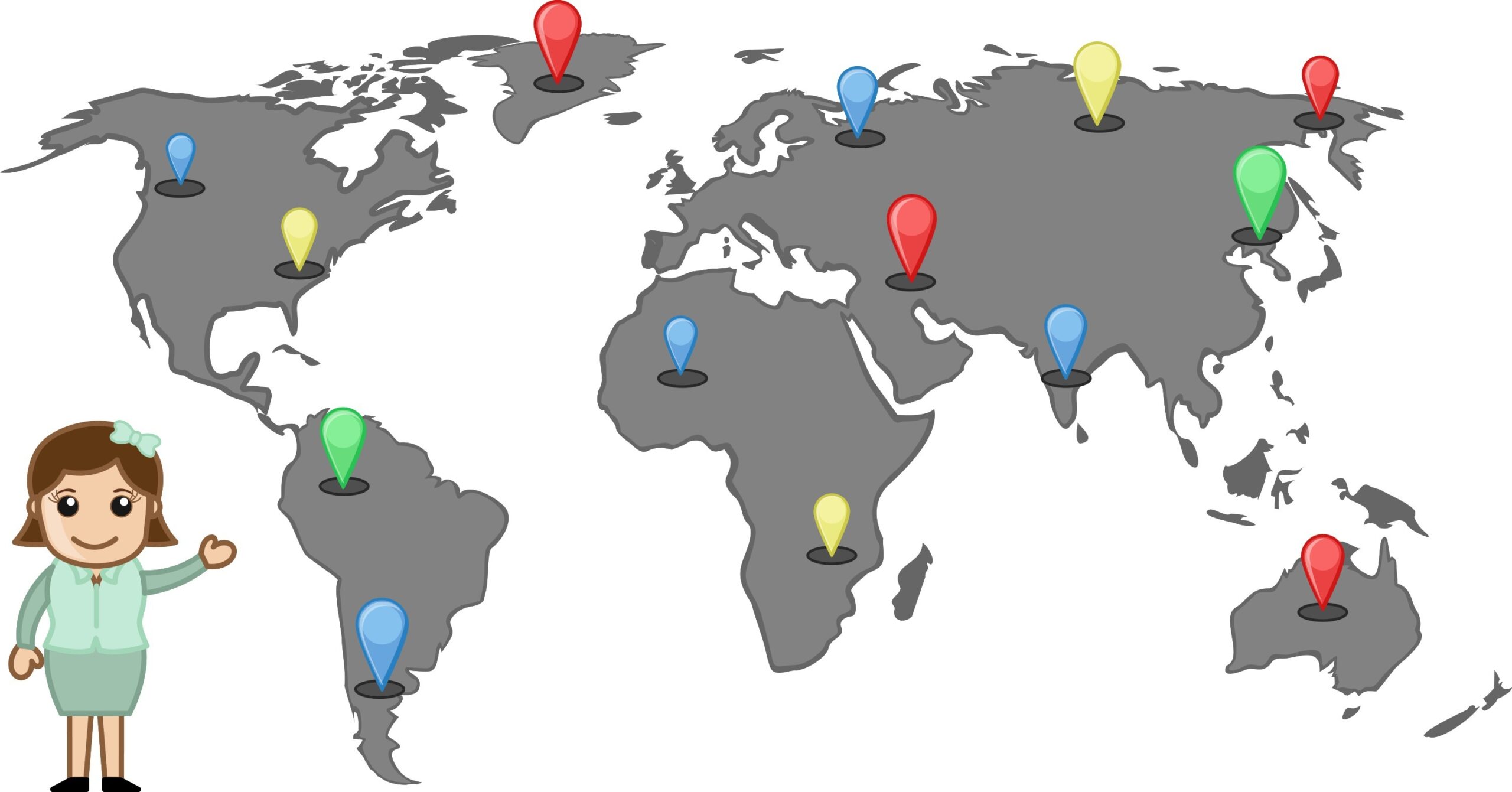Michael R. Pompeo, Secretary of State
QUESTION: Well, with the coronavirus hitting countries around the world, the U.S. State Department has issued travel advisories for American citizens, including for China, Italy, South Korea. The advisory for China is a Level 4. Americans should not travel there. This comes as the number of infections in the United States has topped 200, with 12 deaths. Joining us now with more on the U.S. response to the virus, Secretary of State Mike Pompeo. Mr. Secretary, it’s great to have you in, especially in studio here with us.
SECRETARY POMPEO: Great to be with you.
QUESTION: The testing kits. I know we – that seems to be paramount on what we’re trying to do, and I know the Vice President is heading things up. And we were looking at some lofty numbers, goals that we were told we would hit that we are now not going to hit. What’s the holdup, and can we really address this without many, many more testing kits?
SECRETARY POMPEO: So I’m not involved in the testing kits directly. I’m trying to work on the things outside the United States to make sure we get it right there.
QUESTION: You hear —
SECRETARY POMPEO: But I’ve seen – I’ve certainly seen the work that’s going on. They’re trying to get the private sector ramped up to get the rate right so that we can do all the testing that’s needed. We’ll work hard at that. We have taken this incredibly seriously; we’ll continue to do that. The testing kits are one element of America’s effort to reduce risk.
QUESTION: South Korea is testing hundreds of thousands of people, and we – was it the original – oh, you’re not an – I don’t know if you’re the person to ask, but it was the original reagent from the CDC that they didn’t realize wasn’t – didn’t work properly? Or —
SECRETARY POMPEO: Yeah, I’m not the right person to ask.
QUESTION: Okay.
SECRETARY POMPEO: I’m not – I’ve not been involved in that level of detail, Joe.
QUESTION: All right. But you would concede that’s something that we have to —
SECRETARY POMPEO: We’ve got to get it – we’ve got to get it right.
QUESTION: We’ve got to —
SECRETARY POMPEO: Yes, sir.
QUESTION: Here’s something you might be able to address, and that is: I’m hearing from Eunice that the restaurants – Eunice Yoon, our reporter in Beijing —
QUESTION: Eunice Yoon is based in Beijing.
QUESTION: The restaurants are – there’s people in restaurants again. People are going back to work. It almost looks like China has had some success in dealing with this and capping it. We would hope that that could happen in other countries around the world including the United States, but we’re told that we don’t have the same type of capability to quarantine people because we’re not as authoritarian as the Chinese Government, as the Communist Party. Could we have a similar success here with our civil liberties that we take for granted?
SECRETARY POMPEO: Yeah, I’m confident we can handle it here. I’m confident that we’ll handle it better than any nation in the world. I’m happy you complimented the Chinese Communist Party today, but remember this is the —
QUESTION: Oh, I’m not complimenting.
SECRETARY POMPEO: — this is the Wuhan coronavirus —
QUESTION: Right, right.
SECRETARY POMPEO: — that’s caused this, and the information that we got at the front end of this thing wasn’t perfect and has led us now to a place where much of the challenge we face today has put us behind the curve. And that’s not the right – it’s not the way infectious disease doctors tell me it should work. It’s not the way America works with the transparency and openness and the sharing of the information that needs to take place. It has proven incredibly frustrating to work with the Chinese Communist Party to get our hands around the data set which will ultimately be the solution to both getting the vaccine and attacking this risk.
QUESTION: The Chinese Government is now pushing back, and again, Eunice Yoon has been reporting some of what they’ve put in the state-run media, where they say that it’s not clear that this even came from China at this point, and that they’re mad at the United States for not thanking them for the efforts they’ve taken to try and slow it down to this point. What do you say to that?
SECRETARY POMPEO: I’m happy about the efforts that they have taken, but no less authority than the Chinese Communist Party said it came from Wuhan. So don’t take Mike Pompeo’s word for it. We have pretty high confidence that we know where this began, and we have high confidence too that there was information that could have been made available more quickly and data that could have been provided and shared among health professionals across the world. It’s most unfortunate.
QUESTION: Let me ask you about travel, though. There was a producer from Vice News who took to Twitter yesterday who had flown in from Italy, gone through customs at JFK, and said that she was not asked at all about her medical situation or whether she had been exposed to the virus or anything like that. What type of confidence should we have when you hear reports like that? She had been coming in not necessarily from an area, I think, that was the epicenter of this, but nonetheless, I think people are looking to try and understand sort of what – not travel bans, per se, but how customs is looking at this as people are coming in and out of the country.
SECRETARY POMPEO: So those are reasonable questions. I would urge everyone not to rely on anecdote stories that one hears about a particular instance, but look at the actions that we’re taking.
So you’re right, Italy is something that we’ve handled in a nuanced way. There are pockets of Italy where there are real challenges, other places less so, and we’ve tried to get the State Department’s role there, the travel advisories for American citizens traveling there, to get the level right. And then the Vice President’s team are trying to get right the piece which is folks coming back not just from Milan or from Naples, but from all parts of the world to make sure that we have the testing right, that we have the restrictions right.
We also don’t want to overreact. We don’t want to get this wrong in ways that are disconnected from the science and the reality. So we work every day to make sure all across the United States Government – indeed, our CDC and healthcare professionals working all across the world – to share information both to reduce risk here —
QUESTION: Right.
SECRETARY POMPEO: — and then begin the important work on the vaccine as well.
QUESTION: At this – you just have opinions like every – go ahead, Andrew. You want to follow up on that?
QUESTION: Well, no, no, the only follow-up I was going to ask about that is do you want people self-quarantining when they’re coming – I mean, we had heard a story yesterday – again, all these are anecdotes. There was somebody who actually had the virus on a plane – there were something like 223 people on a commercial plane – and apparently, everybody on that plane has now been asked to quarantine themselves. The question is how long do those quarantines go on. Should schools get shut if people on that plane have children? I mean, it becomes very complicated very, very quickly.
SECRETARY POMPEO: It does. It gets quick – complicated very quickly. Here’s what I’d urge all your viewers: Go to CDC.gov. Go to the sites where the best data available to the smartest, hardest-working people in the world on infectious disease live and work. That’s the American CDC. They will make very clear what the U.S. Government’s recommendations are, and that’s the place to go. There’s a lot of websites out there saying a lot of things with a lot of anecdotes. The data often turns out to just be —
QUESTION: But at the same time, so much of what the CDC is doing has been criticized. There was that nurse yesterday who came out publicly who was very upset.
QUESTION: From the Seattle area, yeah.
QUESTION: I mean, again, all anecdotal and you’re hearing these one-off stories, but —
SECRETARY POMPEO: Yeah.
QUESTION: To the extent that we’re trying to inspire confidence or you want to have confidence in all of this —
SECRETARY POMPEO: It’s a complicated world. People can go on social media and say a lot of things. I’ve watched the U.S. Government’s response to this since literally the day we first learned, the day the State Department was asked to go rescue Americans from the center, the heartbeat of where this began in Wuhan and Hubei province, and the excellence of our team, our medical professionals, my team, my diplomats that rescued hundreds of Americans. I’ve watched the U.S. Government respond. This response has been serious, robust, and will continue to be.
QUESTION: I have a personal question for you. I have a personal question for you. When you walked in, I said, “Are you shaking hands?” And you shake hands with lots of people from international places. And you said you still were shaking hands. Tell me what you know about the virus, because you’ve been spending a lot of time with people at the CDC.
SECRETARY POMPEO: I do what the CDC tells me to do. I wash my hands. I take all of the precautions. I’m behaving the way that the CDC is asking every American and everybody around the world to behave.
QUESTION: So no fist-bump for you?
SECRETARY POMPEO: We – I’m happy to fist-bump too. I saw my son last night. That’s what we did. (Laughter.)
QUESTION: At the town hall the President had last night, he stayed after and then he addressed how much he doesn’t like shaking hands his whole life.
QUESTION: He never has. I mean, that’s – yeah, right.
QUESTION: And he shook – he said that I will shake as many hands as anybody wants to shake my hand here tonight, I’m going to shake their hand. We shook hands, actually.
SECRETARY POMPEO: We did shake hands.
QUESTION: We didn’t hug, did we? No, because I’m mad at you for Wichita State, actually, for that recommendation.
SECRETARY POMPEO: I watched the game last night, too. I’m working my way through it. A lot of anxiety.
QUESTION: Yeah, yeah. Can we just – since we – Secretary of State, there’s a few other things that you’re dealing with, all right? Actually, I want to you ask you: Is Secretary Azar, is he still a point man? He was pulled from some of the appearances –
SECRETARY POMPEO: No, so —
QUESTION: — today over the weekend. There’s no —
SECRETARY POMPEO: He is still – he is still —
QUESTION: He is not thought of less favorably?
SECRETARY POMPEO: He is the person that the State Department primarily interacts with. We sent to work with the Vice President a woman named Deborah Birx, who works for me at the State Department, who has been working on global health issues for most of her life, to help the team. But the entire team is still working on this, and Secretary Azar is a big part of it.
QUESTION: What do you hear from the heads of state or from your counterparts in other countries right now? What’s —
SECRETARY POMPEO: So as I have traveled these past weeks, what they want is American help, American help in three dimensions. First, information. What do we know? How are we responding? How should they think about it in their country? Second, and this is especially true for countries that have long borders with either Iran or China, they’re very worried about the transmission across the border, across their boundaries, and they want our assistance in how they should think about that. And then third, we’ve tried to help these countries with supplies as well to make sure that they had supply chains that they could access. They often have health care infrastructures that aren’t remotely like ours, and so they’re looking for our assistance to think about how to build that resistance out inside their country.
QUESTION: We have seen some – just one quick.
QUESTION: No, go ahead.
QUESTION: We have seen some hoarding on different places where every nation starts to care about their own citizens too, like with India this week saying that they were going to hold back 10 percent of the raw materials for pharmaceuticals that they’ve been sending to us to this point. So how do you deal with that where there are mask shortages everywhere? I mean, every country wants to help, but they also want to protect their own citizens, too.
SECRETARY POMPEO: Oh yes, every leader has a first responsibility to take care of the citizens of their own country. But when you have a complex situation like we have today, it’s often the case that assisting people in other countries where there are real serious outbreaks has the reflective benefit of helping people in your own country, too.
QUESTION: Right.
SECRETARY POMPEO: So we watch this. We watch these supply chains very closely. We’re working to build out capacity here in the United States so we can be sure to do the things we need to do for the American —
QUESTION: To the extent that you’re worried about systemic risk in any of these countries, in terms of what could happen to their economies if things continue apace, what are you worried most about? Because investors right now are trying to game out, dare I say, sort of how this plays itself out and really where the risks lie.
SECRETARY POMPEO: Yeah. Well, look, you first look to the places where there’s big economies that are deeply connected to America’s economy. That first place is China, with a billion plus people and enormous economic connectivity to the United States.
QUESTION: But do you worry about their banking systems? Do you worry about the Italian banking system, for example?
SECRETARY POMPEO: I worry about banking systems in lots of places around the world lots of days. Secretary Mnuchin has the con on that, but I watch how we think about risk to the financial systems. But honestly, we’ll get a labor report this morning. We’ve got the lowest unemployment rate. This is an economy that was in a good place. We now – for good or for bad, we’ve got Brent Crude trading at 47 dollars a barrel. Americans will benefit from lower gasoline prices.
So there are changes that will take place in the economy, but the mission set is to work to take down risk and be transparent so that decision makers, whether they’re economic decision makers or medical decision makers, have data sets upon which they can act, and not basing their decisions on an anecdote.
QUESTION: I think last night the President actually got quite a bit of applause after answering the Taliban question, which – it’s a tough one for the average American to get his head around, that we’re in some type of talking about peace but we’re – the confrontation seems to – military has stepped up over the last week and a half after we got closer, apparently, to some type of deal. What really is happening? The President said, look, eventually, after 20 years, we’ve just got to bring our guys home. So – and I understand the President actually talked to the —
SECRETARY POMPEO: He did. He spoke —
QUESTION: — head of the Taliban. First time ever.
SECRETARY POMPEO: He spoke to Mullah Barader earlier this week. Look, President gave me two missions sets. The first mission set was to reduce the risk and cost to the United States of America. We have 13,000 young men and women who are there. You know them. It’s fifth – fourth, fifth, sixth, seventh tour in Afghanistan. It’s time to reduce that risk. We spend $25, $30 billion a year. That’s an awful lot of money.
The second mission set was to make sure that America is never attacked from Afghanistan today, and so this is what we’ve been working on. And so a – an important component of that is getting all the parties in Afghanistan – and that includes some really bad actors, including Taliban actors – all the parties to come sit down and begin to have a political resolution to this conflict that, in their country, has been going on for 40 years. We’re determined to do that.
Your point, Joe, about the violence levels, they’re still lower than they have been in the last five or six years. The Taliban have made clear to us their expectations that their folks are going to stop fighting. They don’t – it’s not a unitary entity, but we see the path forward towards a peace and reconciliation opportunity. But in the end, the Afghan people are going to have to make their decision.
QUESTION: Before you go, real quick, it’s a cabinet question. There have been reports that Alex Azar has been effectively sidelined by the President.
QUESTION: You heard me ask that, right?
QUESTION: And I didn’t – I didn’t hear him ask that.
QUESTION: You didn’t hear me ask that —
QUESTION: I completely apologize.
SECRETARY POMPEO: And I denied that there’s any accuracy to that, yes.
QUESTION: He denied —
QUESTION: I completely missed it.
QUESTION: He said that that’s who State actually interacts with most.
QUESTION: Every once in a while, I —
QUESTION: And every once in a while, you ask a really good question, and I completely missed it.
QUESTION: You miss them all.
SECRETARY POMPEO: This is why I love being on your show.
(Laughter.)
QUESTION: Yeah, all right. Anyway, Mr. Secretary, we appreciate it. Thank you.
SECRETARY POMPEO: Joe, thank you all.
QUESTION: Thank you very much, Secretary.
QUESTION: Thank you.




